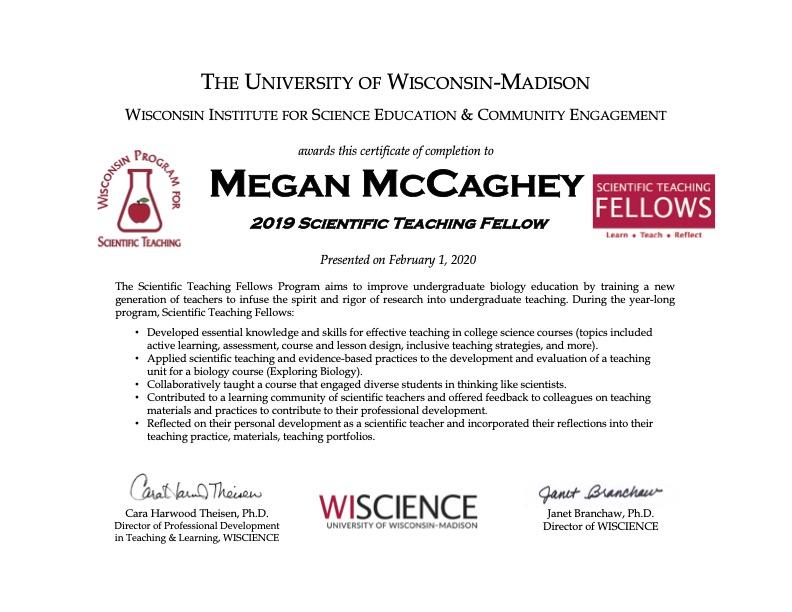Current Courses Taught
Plant Pathology 1005, "Plants Get Sick Too"
Plant Pathology 1005 is an introduction to the science of plant pathology through both lectures and laboratory exercises and meets the Biological Sciences Core requirement presented by the Council of Liberal Education.
The course is designed to help students develop:
An appreciation of the role of plant diseases in society; their direct effects on human health, the environmental consequences of plant diseases and disease management, and their past and potential effect on humans and food security
An understanding of general biological concepts, such as biological nomenclature, taxonomic rank and organization, ecological roles, natural selection and evolution, diversity, and physiology and primary metabolism
Offered each fall semester
Plant Pathology 5444, Ecology, Epidemiology & Evolutionary Biology of Plant-Microbe Interactions
During this course, students develop an understanding of the consequences and benefits of living small. We will describe the diverse roles and life histories of plant-associated microbes and drivers and assessments of microbial diversity. We will also contrast drivers and consequences of plant-microbe interactions in natural and managed systems. In the epidemiology section, this course focuses on understanding and modeling how biotic and abiotic conditions affect epidemic dynamics. Ultimately, student will learn to apply concepts in ecology and epidemiology towards disease management and societal improvement.
This course is required for graduate students taking the "standard track" in plant pathology, but is open to students of all related disciplines!
Offered even years, spring semester
PUBH 7200, Fungi Magic
This class is an exploration of historic and current roles of fungi in human, animal, plant, and environmental health for the Summer Public Health Institute.
Offered May Session (2023 and 2024)
Teaching Approach
In undergraduate and classroom teaching, I aim to 1) create a learning-centered classroom environment through defined goals and objectives and backwards design, 2) engage students through data-driven active learning strategies, and 3) foster an inclusive learning environment.
My approach was shaped by my training as a WIScience Teaching Fellow at the University of Wisconsin, Madison.

